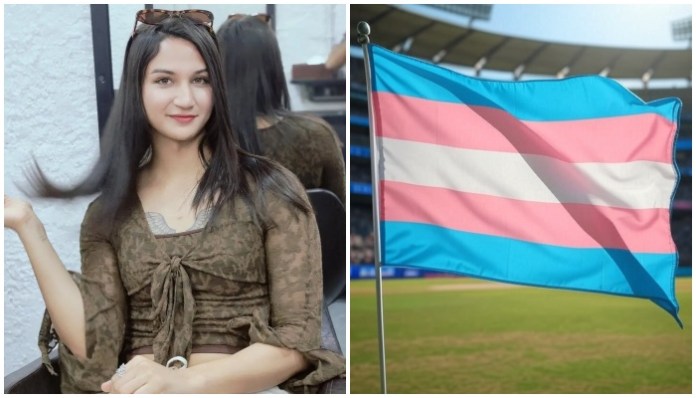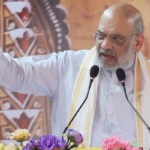Anaya Bangar, the daughter of ex-Indian cricketer Sanjay Bangar, is in the limelight recently after she requested the International Cricket Council (ICC) and the Board of Control for Cricket in India (BCCI) to permit transgender athletes to play women’s cricket. Anaya was born as Aryan, but with hormone replacement therapy (HRT) and gender reaffirmation surgery, she has identified herself as a woman. She even published a comprehensive report to validate her assertion that she is physically capable of playing women’s cricket.
Her emotional argument, backed by information regarding muscle strength and oxygen levels, has had mixed reactions. Although Anaya’s openness is to be appreciated, the bigger question is: Is it right to permit biological males, irrespective of whether they go through the ‘transition’ or not, to take part in women’s sports?
Let’s be honest. Sports, particularly physical ones such as cricket, rely greatly on biological variations—strength, speed, endurance, reflexes, and even bone structure. No dose of hormone treatment can eliminate the physical benefits a male body has attained during puberty. Men generally possess bigger hearts, heavier bones, more muscle, and greater haemoglobin levels. These characteristics don’t just disappear with HRT. Enabling ‘trans women’ to compete alongside biological women is a serious issue of fairness and safety.
What about fairness for women?
This is not merely a theoretical problem. All over the world, biological female athletes are losing spots, scholarships, and even championships to ‘trans women’ who, even after transition, continue to possess physical advantages. The very essence of women’s sport was to provide a level playing field. If that arena is lost or rendered unequal, then what is the use of keeping competitions gender-divided altogether?
Former American swimmer Riley Gaines has been among the most vocal voices criticising this inequality. She has publicly expressed how unjust it is when biological men compete against women. Gaines lost a medal to a trans competitor and ever since has dedicated herself to advocating on behalf of biological female athletes’ rights. She has also been criticised and met with resistance, but she does not waver from her position: Let women compete fairly.
Simone Biles, arguably one of the greatest gymnasts ever, also entered this debate. Most recently, while commenting on transgender rights in sports, she chastised Riley Gaines and stood up for trans inclusion. Even Biles’ entry into the fray, however, illustrates how polarised the issue has become—even among elite athletes.
When celebrities speak out
This argument is not exclusive to sports. Author J.K. Rowling has also had a lot to say on this topic. She recently came after TV personality John Oliver after he employed his HBO program Last Week Tonight to advocate for the participation of trans women in women’s sports. Rowling had a strong reply, stating that disregarding questions about safety and fairness is irresponsible. She stated that it’s not hateful to demand fairness, it’s required.
I understand why men like Oliver, who've consistently mocked anti-science people on the right, sold out initially. They didn't want to blow up their careers. Taking fashionable anti-women's rights positions was the cost of doing business.
But it's time to read the fucking room. https://t.co/FyEkqtaxcL— J.K. Rowling (@jk_rowling) April 7, 2025
What Rowling and countless others are attempting to communicate is straightforward: biological sex does matter, particularly in the context of athletics and facilities where physical disparities cannot be disregarded. Whether it is a playing field, a bathroom, or even a jail cell, women are entitled to equal and secure spaces. And in much of the world, those spaces are diminishing.
Let women have their space
We also cannot forget that women’s spaces, be it in sports, bathrooms, or shelters against violent crimes, have a purpose. Women have struggled for decades to be acknowledged, heard, and treated with respect in these spaces. Adding ‘trans women’ to these spaces without strict rules or boundaries not only endangers fairness but also safety in certain situations.
In certain Western nations, biological men who call themselves women are now being permitted in women’s restrooms, gyms, and even prisons. It has resulted in numerous horrific cases and issues of safety. We need to learn from these instances and consider things thoroughly before treading the same route.
Is there a middle ground?
There is a solution that treats everyone better. Rather than pushing transgender athletes into women’s sports and disadvantaging biological women, why not establish a third category for them? Just as we have men’s and women’s, why not a third? That way, nobody gets left out, and nobody gets unreasonably advantaged or injured.
Yes, it would require time and planning. There may not be sufficient participants initially. But change also begins small. Having a distinct category guarantees that transgender athletes will be able to compete at their best without killing the essence of fair competition among women.













